- Home
- Frank Delaney
Tipperary: A Novel of Ireland Page 2
Tipperary: A Novel of Ireland Read online
Page 2
Still inside the little garden, where Mr. Treece's horse had trampled some of the pretty flower-beds, and where the team of the battering-ram had ruined everything else, the man paused and held up a hand. Behind him, the bloodied members of his family halted.
He turned to them and said, in a loud voice, “Take a good look at this man on the horse. You already know who he is—he's our landlord, George Treece. He's evicting us. Evicting the wife and three children of a man who put on the King's uniform and fought for England. He's evicting us because he wants the land for grazing, because he thinks sheep and cattle more valuable than people. He's evicting people whose family has lived in these fields for more than fifteen hundred years. Look at his face and never forget him—because if you don't meet him again, you'll meet his seed and breed.”
He didn't shout these words; he spoke them more as an actor intending to reach an audience, or like a man with an orator's gifts. At that moment it seemed to me that the entire world stood still.
Mr. Treece never spoke; his horse flinched a little, and snorted; the men with the battering-ram stood with their hands at their sides; and the men in uniform quietly lowered their guns and began to put them away. More than a few seemed uncomfortable.
Near the house stood a dense wood, into which this maimed ex-soldier led his wife, their babe-in-arms, and their two sons. Like characters in a magic tragedy they disappeared into the darkness of the trees; the last I saw of them was the blood on the legs of one of the boys. My father exhaled, “Boys-oh-dear.”
Mr. Treece wheeled his horse and rode out of the little cottage garden.
“You know what to do,” he shouted and stood his horse off some distance.
The men with the battering-ram and its tripod moved slowly enough.
“They've no stomach for it,” said my father. In all of this, he never addressed his remarks to me directly; rather, he suspended them in the air for me to inspect.
Slowly the work-gang began to move, aided now and then by a uniformed man, usually if he saw something about to go awry, such as a pole of the tripod about to slip or a slab of thatched roof about to fall down on top of them all. Nobody spoke to anybody. I heard grunts, I saw effort, men wiped sweat from their faces, and the dust from the thatch darkened them head to toe. Their labors concentrated on the front wall, with its two windows and its door, and when they had leveled it to the ground, the little house, with its table and few chairs and tall dresser with some plates on it, looked like something built for a theater in the open air.
At that moment, the men looked to Mr. Treece for direction, as though they might scavenge something for themselves.
“Put the furniture on the cart—we'll throw it into the lake. Level everything else,” he roared. “Smash all. If they didn't think enough of it to take it with them, it's worthless. Like they were.”
At home, when we heard china break, our housekeeper, Cally, would call from the kitchen her famous apology to Mother (and my father, with a grin, would silently mouth the words): “Wet hands, ma'am.” Now, though, the crashing of this crockery sounded different—multiple, deliberate, and awful. For some reason that I could not divine, this affected my father most of all; he wiped a hand across his face, murmuring again, “And he wanted me to witness this.”
A fire had been burning on the hearth; the men trampled it out with their boots until only a wisp of smoke rose from the earth, a blue dying breath. Father and I stared at the scene, and we sat in dull silence thereafter for what seemed like an hour.
By the time he turned Barney's head for home, my father had become pale and morose, not at all like him. He was a merry sort of man with apple-red cheeks; he was thirty-two that week and had much enjoyed being teased by Mother about getting old. Now I worried, and tried to speak to him. I moved from my side of the ponytrap and sat on his seat and leaned my head against his heavy sleeve. He thought that I sought comfort from him and reached his arm about my shoulders—but I wanted to make him feel less sad. At the last possible moment, we looked back.
All the walls had come down; they had toppled the chimney. Hauling the cart, the great horses were being led back and forth, back and forth, across the debris, trampling the remains of that modest homestead into the ground. The men had now taken up shovels and were turning the earth in all directions, and by noon the next day, I reckoned, we would scarce have known that people had ever dwelt there. The history of that home had come to an end—and we did not even know the family's name.
But then Father gripped my arm.
“Look! The edge of the wood.”
In the county Tipperary we have marvelous forests, deep and absorbing, with hazelnuts and crab-apples, ash and sycamore, cool, spreading oaks and wide, rewarding beeches. Under these branches, in the shadowy treeline beside this destroyed household, local people had begun to materialize, like ghosts out of the darkness. They never quite stepped into the sunlight but I somehow knew that they had been there all along, watching. Men and women, both young and ancient, boys and girls, both small and growing, all dressed in the uniform shabbiness of the people who lived in the cottages, all gaunt with the same undernourishment—they stood shoulder to shoulder among the green ferns and the red bracken, a long, thin, single line of witnesses, gazing calmly but intently at the eviction.
A hundred or more, white-faced and grave, and unmoved of expression, they never made their presence felt; they spoke not at all. So shadowy did they appear that they might have come from Hades or any other place where Shades dwell.
We watched them for no more than two or three minutes—and then they stepped softly back into the trees, where, as though dissolving, they vanished into the shadows. I almost felt that I had been dreaming.
So moved were Father and I at the sight of these specters that we started with surprise when Mr. Treece shouted. He beckoned to my father—who abruptly turned his head away and flicked Barney homeward with the long carriage whip.
“Don't you talk to me, George Treece,” he muttered and never said another word until we reached home.
Mother came to the door when we stepped down from the trap. Pen in one hand, spectacles in the other, she had been doing what she called her “work,” the farm ledgers.
“Where were you? You were a long time.” She looked at my father, saw his moroseness. “Oh.” She stopped. “What happened—?”
“George Treece,” said Father, sighing and grim.
Mother knew how Father loathed evictions; he had never put anybody off his own land. And she evidently knew Mr. Treece's reputation in such matters.
“Again?” she said, disturbed.
“Again,” said my father.
“Who this time?”
“You know them by sight,” he said to her. “That man who lost his leg—I can never remember his name.” He sighed.
“But didn't they have a baby last month?”—and she frowned at me. “Go wash and change, Charles.”
And then at dinner, a somber, quiet, and somewhat puzzled dinner, when even Euclid, who was only four, had the sense not to say a word, Father said to me, “Please write down what you saw. It will last longer if you do it. These things will need to be known one day.”
None of that Treece family can be found in Tipperary today. Their property dissolved early in the twentieth century, when, under new legislation, the British government set a price for any landlord who wished to sell. In many cases, their native Irish neighbors—their former tenants— became the new purchasers, and saw it as no more than the recovery of their ancestral rights. By then, anyway, many of the landlords had been trying in vain to collect their Irish rents. A Treece hadn't lived in the county for years—the name gave off too foul an odor for safety.
The man with the whip died as he lived. A report in The Limerick Reporter & Tipperary Vindicator in April 1880 tells that “Mr. George Treece, late of Ballintemple, Tipperary, died at his home in Ontario, Canada, following a fall from his horse, in a violent incident now being investigated by th
e authorities. He had migrated to Canada in 1872”—that is, three years after the eviction witnessed by the young Charles O'Brien; no further details were given.
Within days after that eviction, Ireland's ballad tradition, a powerful underground, cleared its throat and began to mock:
To hell with the Treeces, that rack-renting crowd;
Their finest apparel's the brown winding-shroud;
From your cats they'd steal fur, from your sheep steal the fleece;
The world's better off when it buries a Treece.
Mr. O'Brien makes a slight error when he says that the Treeces had been rewarded “for helping Oliver Cromwell on his fiery rampage through Ireland in the 1650's.” So they had, but the reward consisted of being granted a bigger acreage in Tipperary than the estate they already farmed in the poorer county of Clare, some sixty miles to the west.
Originally the Treece family had come over from Yorkshire. They formed part of the Munster Plantation in the late 1500s, which sought to replace the native Irish in the country's southernmost province with loyal English subjects. Many went back to England and Scotland when the tides of history began to drown them.
But others of those colonists stayed on. They were called “planters,” because they had been planted in the land from which the native Irish had been uprooted. Now they rode the waves of change, and having caused much of the past's turbulence, they had to survive in the ever more violent future.
Of the nameless tenant's house torn down in that eviction, not the slightest vestige remains, not even a mark on the ground. Its location—or, rather, the outlined locus of a tenancy—can still be traced on nineteenth-century land maps. An old fence post still stands that might have marked the tenant boundary, but the ground has long been pasture, probably since the day George Treece leveled the place.
The woods, though, have survived, and increased. After the 1921 treaty between Ireland and England, the new Irish Forestry Commission took over that terrain northeast of the town of Tipperary, close to the village of Dundrum. It maintained the fine growths planted by English governors, and even though some modern house building has encroached on the roads up from the sawmill, the countryside still offers a deep sense of peace. And there are still tall ferns and bracken at the edge of the trees.
As for the people who, in Charles O'Brien's words, “lived in the cottages, all gaunt with the same undernourishment”—they must have traveled some distance that day. Many no doubt came from the village of Dundrum, where the Treeces were particularly hated. It also seems likely that some walked out from the town of Tipperary itself—word of a threatened eviction spread like wildfire in those days.
The fact that they brought no weapons suggests that (a) they had heard in advance that a militia would attend; typically, such evictions could be accompanied by stone throwing and, in larger or more desperate cases, riots. Or, and equally possible, (b) they were generally too disempowered and hungry to offer any significant resistance.
Charles O'Brien's choice to begin his manuscript with such an incident begins to explain why he called his document a “History.” He prefers not to call it an “autobiography” or “memoir” because he sought to perceive the dramatic personal events of his own life in tandem with the political upheavals of the era.
As already stated, I have recounted that eviction scene because it has recurrently haunted me; also, because I found it emblematic of the political and social agitations in the Ireland into which I was born. Now I add another reason. The Treece eviction, with its compelling elements of passion, violence, and land, has come to form the opening chapter in what amounts to a History of My Own Life—a task that I undertook for a most specific and personal purpose, which I will here explain.
In the year 1900, when I was forty, I had not yet married (to my mother's oft-stated concern). Then I met an exceptional person. As you shall soon know the whole tale, let me abridge it here by saying that I found myself hurled into a passion deeper than any of which I had read or ever imagined; it was Abélard to Héloïse, Dante for Beatrice, Arthur and Guinevere at Camelot. It elevated my spirit and yet pitched me into an awful confusion, one in which I lost direction for a time long enough to make me think I might never recover it. My wooing began in passion, was defined by violence, and ended up circumscribed by land; and all these elements molded my soul as surely and as fiercely as George Treece and his whip shaped the life of that unfortunate little family.
Of the passion, I shall write more and at greater length—indeed it is, in the main part, the purpose of this History. As to the violence, with the irony that has run through my life as a vein runs down my arm, it began days after I had met this marvelous young woman who, without her knowledge, became the core of my life. I recall reflecting that it was as though the great new beauty in my heart required balancing by the force of the world.
The first attack came after I had spent an afternoon in the city of Limerick, seeking the help of a dear friend. She had listened carefully to my lyrical descriptions of my new love, and then counseled me wisely on how to win the girl. I had left her house and was walking along a street when I saw two men, one fat, one thin, and a shabby woman lounging by a shop entrance. They did not catch my eye in any significant way; they were disheveled and, I thought, of a low type.
Of a sudden, after I had passed them, I received a blow on the side of my head. Never before, not as a child or a boy, had I felt as much as a mild cuff on the ear or any personal assault—and now physical violence arrived with ferocity. A stinging noise sang like a bee in my brain—and more blows landed. Pain seared my mouth as a back tooth was knocked loose; a boot on the shins made me shout with pain. For reasons that I did not yet understand, I thought of Saul on the road to Damascus. My shin received a severe gash, a hobnailed boot struck my hip. More blows on the side of the head followed, more kicks on the shins and hips; I was bewildered and close to tears; I would have wept, I think, had it not become so urgent to fight back.
I began to defend myself—and straightaway hurt my knuckles when my fist struck the fat man of the attackers, not on his face but on a bone of his shoulder, because I aimed the punch incompetently.
“Get him on the ground,” the woman shouted. “On the ground!”
Next, both men clambered upon me and their accomplice, with her thin pointy nose, ran forward and began to hit my face and head with her little fists. This annoyed me beyond measure, especially as I, a gentleman, could not fight against a woman.
I began to spin around in a circle, very swiftly, to avoid the harridan's slaps and to dislodge the two villains who were swinging upon me. The fat one fell off quickly and squealed in pain like an infant, and that improved my morale. Although the other person clung tighter, I soon dislodged him too, and I must have shrugged them both off with some force because they lay on the ground in a moaning disorder. The woman came rushing at me, waving her mean and dirty little hands, shouting, “Now look at you! You're after doing them damage!”
This seemed illogical (even for Ireland), so I said, “But, madam, they attacked me.”
“You're a scut, that's what you are—you're a rank scut.”
Then, as a gentleman opened his door to clear this commotion from the front of his house, the small woman ran away. The two men, moaning and groaning, rose from the mud of the street and took themselves off too. I retrieved my hat, which showed no damage, bowed slightly to the inquisitive house-owner, who went back indoors, and continued on my way.
Who were they? I do not know. At first I assumed that footpads, robbers, had come upon me—but they had made no attempt to take money or valuables (and I was wearing an excellent watch). Next I presumed mistaken identity—that some family or neighborhood fracas had spilt over into the wider streets of the city, and I had somehow been mistaken for a member of the dispute. My questions progressed; perhaps somebody had hired them to attack me, because the assailants and their female companion did not have the appearance of people whom I—a gentleman, and
of good family—knew or would have sought for company? But who might have hired them? I believed myself generally popular— even though I admit one or two antagonisms in life, as any man may acquire; but I had no gambling creditors, jealous husbands, or the usual such adversaries.
Now came what I think of as my Damascene moment! To be assailed physically is to be reduced temporarily to a form of helplessness not unlike childhood. I felt unprotected and in danger. At the same time, here was I endeavoring to win the heart—and the life's companionship—of an unusual and important young woman whom I had recently met, and yet I felt as weak as water. My next thought was: If a pair of ruffians may so dislodge my general resolve, what right can I have in my romantic ambitions? “Faint heart never won fair lady”; truly, “only the brave deserve the fair.”
Generally, in those days, I ambled through the world; I was a reasonable and wandering fellow, I went about my vocation trying to heal the sick, and I took little thought beyond the morrow. But now! In a blaze of mental and emotional power, I resolved to become the master and commander of my life. Under a streetlamp, I stood and regained my composure, and felt the vow forming in my heart—the vow to alter myself and become remarkable.
My method became the material that you now see here: My Life as a History of Which I Am Author. I did not set out to be vainglorious. It is rather that I hoped by setting my events and remembrances down on paper, I might come to understand, as a first step, how to make myself outstanding. Writing the History of my life would, I believed, help me come to terms with my fortunes, and lead me through the rapids of this new and dominating passion to which I must fit myself.
As I reflected, a mist lifted and a calm floated down upon me. I thought: If I can make myself into a good man, a fine man, then it follows as the night the day that I shall be loved as I wish to be, by the person whose love I seek. (My father said many times, “Give her up, she's a losing bet.” I could not.)

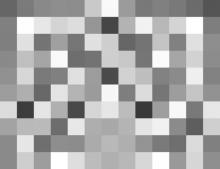 Tipperary: A Novel of Ireland
Tipperary: A Novel of Ireland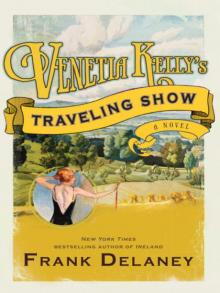 Venetia Kelly's Traveling Show: A Novel of Ireland
Venetia Kelly's Traveling Show: A Novel of Ireland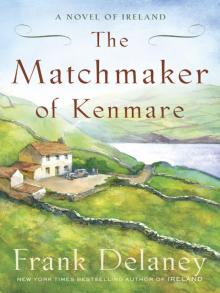 The Matchmaker of Kenmare
The Matchmaker of Kenmare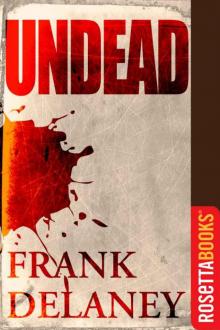 Undead (Kindle Single)
Undead (Kindle Single)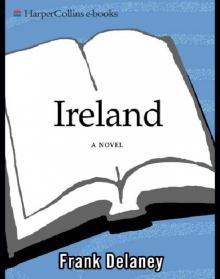 Ireland
Ireland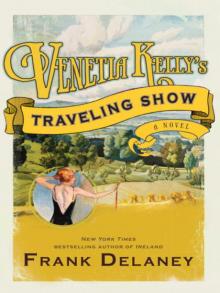 Venetia Kelly's Traveling Show
Venetia Kelly's Traveling Show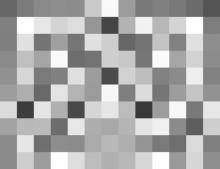 Tipperary
Tipperary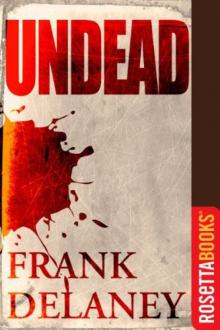 Undead
Undead